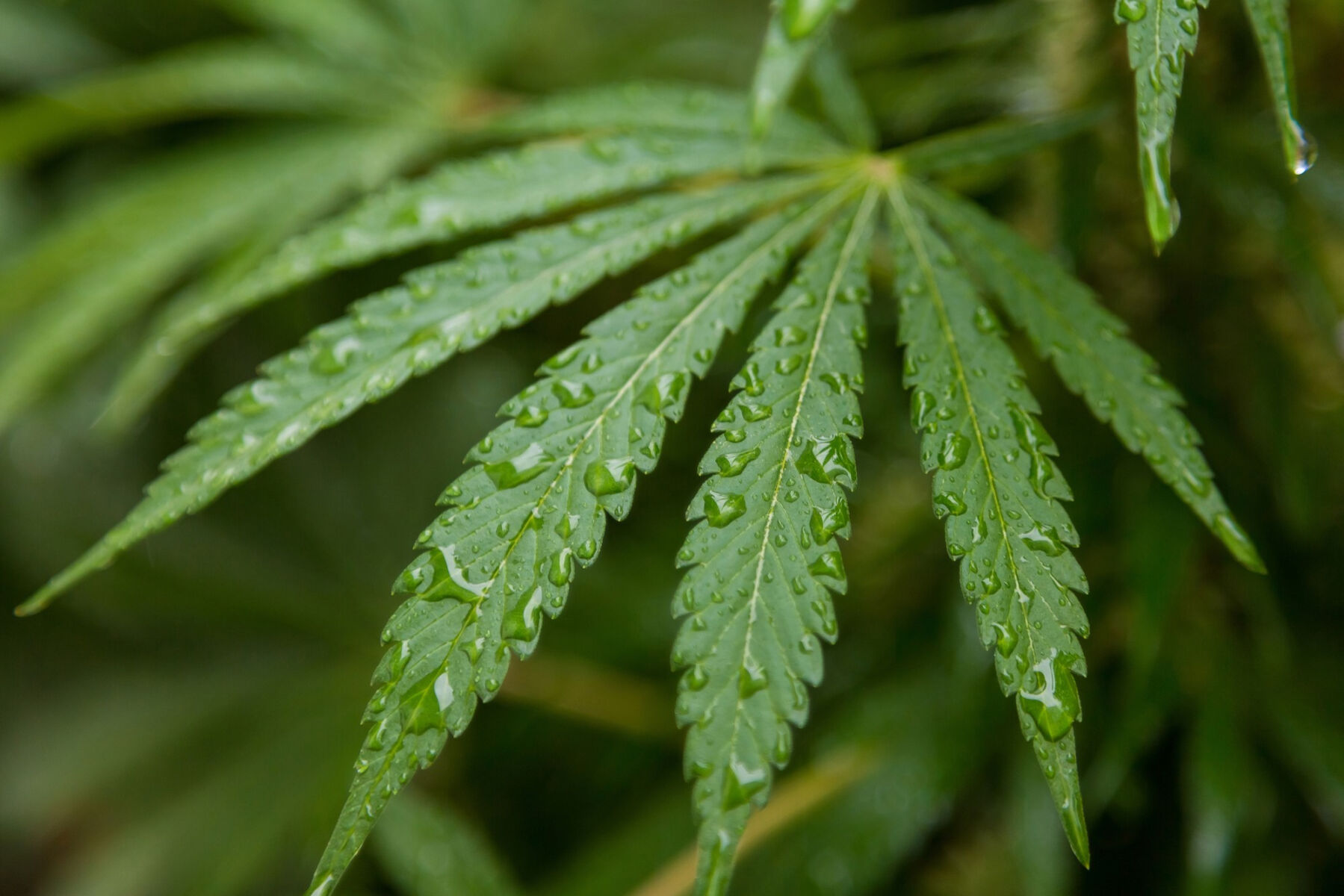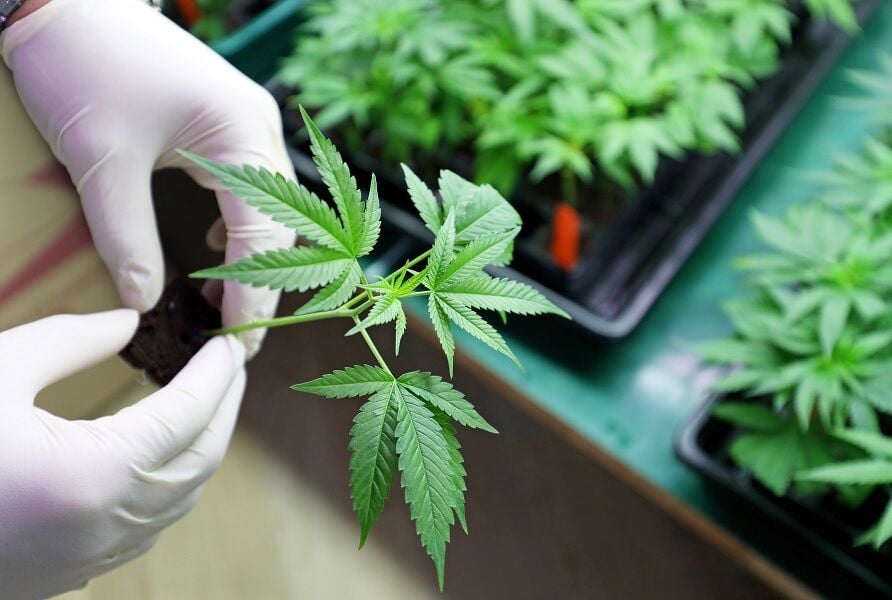Unlocking cannabis terpenes: The goods and bads

Terpenes, those aromatic compounds you’ve likely heard about, are making waves beyond their traditional association with Cannabis sativa. While they’ve gained fame through their presence in cannabis, these compounds are not exclusive to it. Terpenes from non-cannabis plants are sparking interest for various reasons. Let’s dive into what sets cannabis-derived terpenes apart from their botanical counterparts and explore the advantages and drawbacks of each.
The conversation around terpenes is heating up, fueled by the debate on the efficacy and safety of cannabis versus plant-based terpenes. With terpenes now a hot topic in the wellness and cannabis industries alike, understanding their pros and cons is more relevant than ever. Whether you’re a cannabis enthusiast or simply curious about the buzz around terpenes, this guide will provide you with the insights you need.
Pros and cons of cannabis terpenes
Diving into the world of cannabis terpenes, you’ll uncover both advantages and disadvantages as these aromatic compounds gain popularity. Here’s what you need to know.
The benefits
Cannabis terpenes aren’t just about adding aroma; they enhance your experience in several key ways:
-
Synergy with cannabinoids: Terpenes work in harmony with cannabinoids like THC and CBD, potentially amplifying the therapeutic effects, a phenomenon known as the entourage effect. This synergy can make your cannabis products more effective.
-
Diverse flavours and aromas: With a wide variety of terpenes found in cannabis, they add a unique flavor and aroma profile to your products, making them more enjoyable and distinctive.
-
Therapeutic properties: Research suggests terpenes have their therapeutic benefits, which can include anti-inflammatory, anti-anxiety, and analgesic properties.
The drawbacks
However, it’s not all smooth sailing. There are a few considerations that might make you think twice:
-
Purity concerns: Extracting terpenes from cannabis can introduce impurities if not done correctly. This risks contaminating your products with unwanted chemicals.
-
Legal and regulatory issues: Depending on where you live, the use of cannabis-derived terpenes can face stricter regulations compared to their botanical counterparts, potentially limiting access or increasing costs.
-
Consistency issues: Harvesting terpenes from cannabis can lead to variations in concentration and profile, depending on the strain and growing conditions. This can affect the consistency of your product from batch to batch.
In understanding the pros and cons of cannabis terpenes, you’re better equipped to make informed decisions about incorporating these compounds into your routine. Whether you’re seeking to enhance your product’s effectiveness, enjoy a bouquet of flavours and aromas, or weigh the importance of purity and consistency, cannabis terpenes offer a complex landscape to navigate.
Pros of cannabis terpenes


Exploring the world of cannabis, you’ll quickly encounter terpenes, the compounds that give the plant its distinctive aroma and flavour. But terpenes are much more than just sensory delights; they offer significant benefits, particularly in the realms of aromatherapy and therapeutic effects. By understanding these advantages, you can better appreciate the role terpenes play in cannabis products.
Aromatherapy benefits
Cannabis terpenes, known for their potent fragrances, are key players in the world of aromatherapy. They’re responsible for the soothing lavender scent, the uplifting whiff of citrus, and the calming earthiness of sandalwood, all of which stem from various cannabis strains. These aromas do more than just please your senses—they can influence your mood and stress levels. For example, the terpene Linalool, typically found in lavender, boasts properties that can alleviate stress and promote relaxation. Similarly, Limonene exudes a citrus scent known to uplift spirits.
Aromatherapy, a practice that leverages these scents for health and wellness, heavily leans on such terpenes. By integrating cannabis terpenes into oils, candles, or personal care products, you can harness their natural ability to influence mood, improve sleep quality, and even enhance cognitive function.
Enhanced therapeutic effects
The synergy between cannabis terpenes and cannabinoids (like THC and CBD) isn’t just speculation—it’s backed by science. This interaction, termed the Entourage Effect, amplifies the therapeutic capabilities of cannabis. Research suggests that terpenes can enhance the medicinal properties of cannabinoids, leading to more effective relief from symptoms such as pain, inflammation, depression, and anxiety.
Take Myrcene, for example, a terpene that not only imparts a herbal aroma but also increases cell membrane permeability, making it easier for cannabinoids to get absorbed by the body. This can potentially enhance the effectiveness of cannabis-based treatments. Moreover, studies have highlighted terpenes like Pinene and Caryophyllene for their anti-inflammatory and analgesic properties, proving that these compounds do much more than contribute to the plant’s scent and flavour.
In your journey through the cannabis universe, understanding the pros and cons of cannabis terpenes is crucial. The benefits, ranging from the delight of aromatherapy to the enhanced therapeutic effects due to the Entourage Effect, underscore why terpenes hold such value in cannabis products. As you delve deeper into this topic, keep in mind the multifaceted roles these aromatic compounds play in enhancing both the medicinal and sensory experiences of cannabis.
Cons of cannabis terpenes

Potential health risks
When exploring the pros and cons of cannabis terpenes, it’s crucial to consider the potential health risks that might come into play. While terpenes offer numerous benefits, sourcing them from reliable and high-quality origins is key to avoiding adverse effects. Let’s dive deeper into why this aspect merits your attention.
Unregulated products can pose threats
One of the primary concerns revolves around the unregulated market of cannabis terpenes. Products lacking rigorous testing for purity and potency may contain contaminants harmful to your health. This is particularly significant when terpenes, whether natural, synthetic, or cannabis-derived, come from sources that do not adhere to strict quality control measures. Ensuring the terpenes you use have passed thorough testing is not just advisable, it’s imperative for safeguarding your well-being.
Allergic reactions and sensitivities
Another consideration is the possibility of allergic reactions or sensitivities to specific terpenes. Just like any substance, terpenes have the potential to trigger adverse reactions in some individuals. If you’ve ever experienced heightened sensitivity or allergies related to plant compounds, proceed with caution. Paying attention to how your body responds to the introduction of terpenes can help mitigate unwanted effects.
Overuse and misuse concerns
Lastly, the risk of overuse or misuse shouldn’t be underestimated. The belief in terpenes’ beneficial effects might lead some to think that more is better, which is not always the case. High concentrations of certain terpenes can counteract their beneficial properties and lead to discomfort or negative health impacts. Educating yourself on the appropriate usage and dosages is crucial to reaping the benefits while minimizing the risks.
While the landscape of cannabis terpenes is filled with promising potential, navigating it with a critical eye towards quality and safety will ensure you maximize the benefits while minimizing any downsides.
Should terpenes be lab-tested?

When diving into the world of cannabis terpenes, it’s crucial to address whether these compounds should undergo laboratory testing. Lab-tested terpenes represent a beacon of quality and safety in the industry. You might wonder why this step in the process deserves attention. Lab testing verifies the purity and authenticity of terpenes. Given the diverse sources from which terpenes can be derived, ensuring that you’re receiving the compound promised on the label is non-negotiable.
Here’s a concise checklist to guide your terpene exploration:
-
Read the label: Look for a mention of lab-tested terpenes, including detailed profiles and concentrations.
-
Check for freshness: Terpenes degrade over time. Ensure products have a recent packaging date and, if possible, verify the terpene’s potency through its aroma.
-
Exercise caution with cannabis oil: Be especially vigilant with oil-based products, which might contain synthetic terpenes.
-
Handle with care: High heat can diminish terpene effectiveness. Opt for lower temperatures to preserve their qualities.
Cannabis terpenes are aromatic compounds found in the cannabis plant, responsible for its distinctive scents and flavours. Beyond their sensory appeal, terpenes play a crucial role in enhancing the therapeutic effects of cannabis, contributing to the entourage effect alongside cannabinoids like THC and CBD.
Latest Thailand News
Follow The Thaiger on Google News:


























